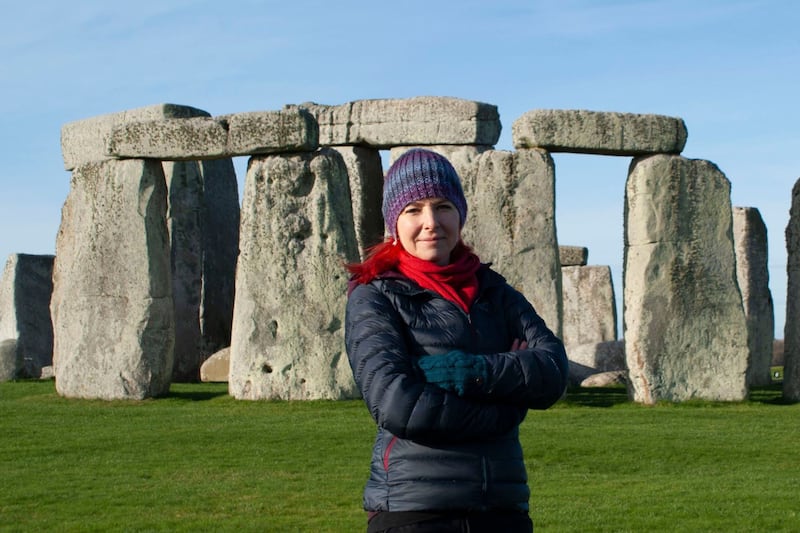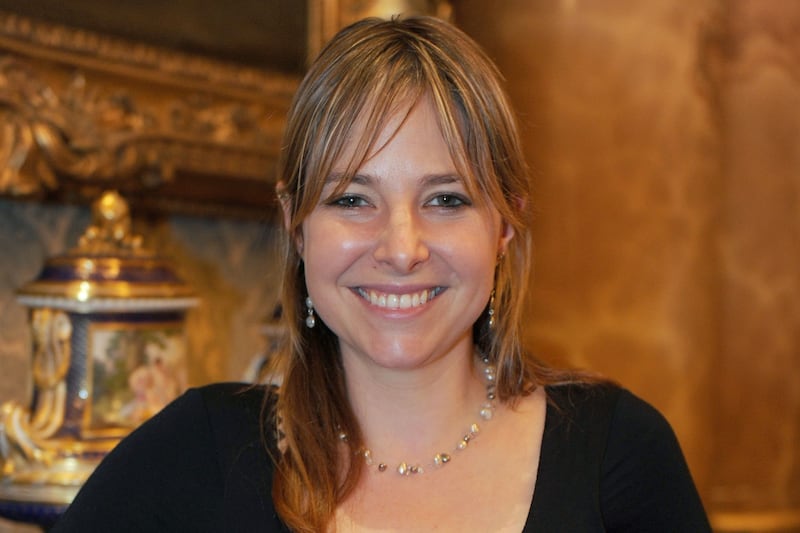SHE’S no stranger to Belfast, having featured the city in a number of her television programmes, including Digging for Britain, Ireland's Treasures Uncovered and, most recently, filming for the forthcoming Channel 4 series Britain's Most Historic Town, where cutting-edge CGI is used to recreate early Victorian times here.
Later this month Professor Alice Roberts is looking forward to returning to the city and travelling back in time for dinner – to somewhere between 8,000BC and 400AD – as she hosts at A Taste Of Prehistory at the Ulster Museum.
The three course dinner will include salmon, a fish caught by our mesolithic hunter-gatherer ancestors, and a pork-inspired dish, reputedly the favourite meat of the mythical Iron Age Irish warrior Cúchulainn.
Guests will begin the evening enjoying a variety of demonstrations such as grinding corn on a Bronze Age quern, discovering how to make ancient pots and seeing the tools and weapons our forefathers used to survive, all before being summoned for dinner with the call of an ancient horn.
It's one of two events in the NI Science Festival that the acclaimed broadcaster, writer and scientist will be involved in.
"I love this festival – it brings the city alive with ideas and events. Science and food is the perfect pairing and in between courses there'll also be the chance to dig into some of the science which helps to reveal the diets and lifestyles of our ancestors," Roberts says.
"The neolithic in particular was a hugely transformative time, when the first farmers arrived in Ireland, bringing their livestock and seeds with them and planting crops that had never grown in Ireland before."
With rates of heart disease and diabetes escalating in our modern world, I ask Roberts, was the diet of our ancient ancestor a healthier one than ours?
"Yes the so-called diseases of the West are due to over-consumption, but it's too simplistic to look with rose-tinted spectacles at the past. Ancestral life expectancy was so much lower, and children expecting to live into adulthood was a new thing of the 20th century."
The 'paleo diet' has become popular in recent years, requiring the sole or predominant consumption of foods only consumed by humans during the paleolithic era, but Roberts warns that it and similar diets should be approached cautiously.
"In the past 5,000 years we know there have been genetic changes that have spread through Europe in populations to allow us to drink fresh milk into adulthood. There are fad diets that advise people not to consume dairy and doctors are quite worried about those diets as dairy is such a good source of calcium and vitamin D. We need to make sure we are looking at real science and not fads," she tells me.
The 44-year-old, who made her television debut back in 2001, as a human bone specialist on Channel 4's Time Team, has developed a reputation as one of television's big thinkers in the subjects of human anatomy, physiology, evolution, archaeology, anthropology and history and she is passionate about making science invitingly accessible to a wider audience.
"I just love uncovering stories from the past, weaving them together and sharing them," says Roberts, whose new book Tamed has been described by English physicist Brian Cox and fellow 'TV scientist' as "a masterpiece of evocative scientific storytelling".
Blending hundreds of thousands of years of history and archaeological findings with cutting-edge genetics, Tamed explores how once wild species – from dogs, cattle and horses to wheat, potatoes and apples – have become closely allied and intertwined with our lives and essential to the survival of our species.
Roberts will sharing the findings of her Tamed research in Belfast and has started working with a production company to produce an accompanying television series.
While fascinated to discover that dogs were domesticated in the depths of the ice age 40,000 years ago by our hunter-gather ancestors, she was particularly enthralled by the research into human origins, with projects like the neanderthal genome project revealing that they, and other archaic populations, have contributed to the DNA of modern humans through interbreeding.
"It’s a new idea in biology that species are continually hybradising and that species are able to interbreed with each other and have fertile offspring. That's quite an important new idea we are coming to terms with in biology and conservation and obviously something we wanted to bring to a wider audience.
“We see a similar pattern with pretty much every species we look at. We think of apples as being quintessentially English, but our apples originated from Kazakhstan and interbred across Europe with crab apples. And while dogs spread away from wolves, they kept breeding with wolves and you see that in their genome more than others," adds Roberts, who can currently be seen on BBC4's Prehistoric Autopsy.
:: A Taste of the Prehistory takes place on February 23 at the Ulster Museum. The event is suitable for ages 18+ and booking at Nmni.com closes at 12noon on February 16. Tamed with Professor Alice Roberts takes place on February 24 at Belfast’s Whitla Hall. Tickets and full programme from Nisciencefestival.com






